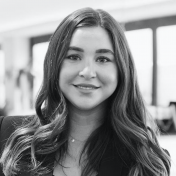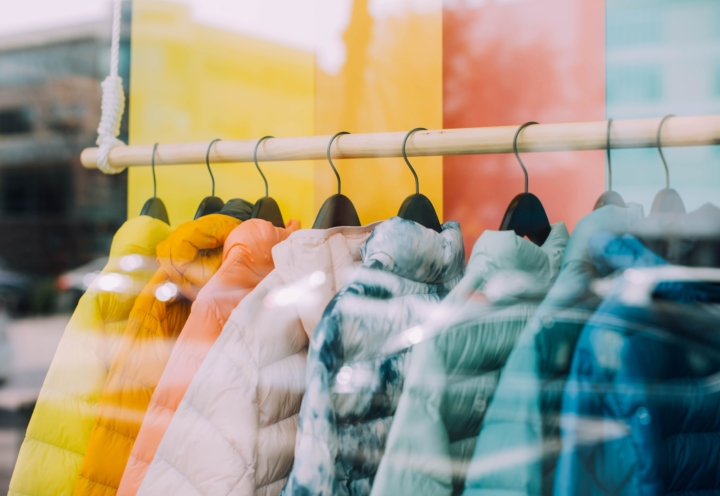Perspectives from Enviu’s Reweave Venture Studio
7 min read
All photography provided by Enviu
SupplyCompass speaks to Marieke Lenders, the Program Lead of Circular Apparel at Enviu, a Dutch company building social multinationals that address social and environmental issues and drive market development. They specifically focus on building companies with high impact in the domains of financial inclusion, circular economy, and food security.
Our conversation focuses on Enviu’s Reweave Venture Studio, an initiative building disruptive and impactful ventures looking to drive the fashion sector towards a circular and fair value chain in India, at the heart of the apparel industry. We sit down with Marieke and learn more about Enviu’s five ventures to date—Khaloom, Puraloop, DesertSpring, Upset and Future Proof Production House—and what’s in store for the future.
Perspectives is a SupplyCompass series that focuses on our supply chain partners operating at the intersection between innovation, efficiency and sustainability, to help shape more inclusive conversations in the fashion industry.
Tell us more about Enviu’s Program, Reweave Venture Studio?
Enviu is a serial entrepreneur and venture building studio, with offices in The Netherlands, India, Kenya, Indonesia and Chile. We build world-changing companies that provide solutions for large social and environmental issues, driving systemic change and establishing a new normal that benefits people and planet
Reweave Venture Studio is a program by Enviu, active in the apparel sector in India. Our goal is to create a circular and fair apparel production chain locally—from raw material to the end-product. We do that by building, with partners, multiple sustainable businesses in the apparel production chain in India. These ventures provide circular solutions at key points along the chain, from sustainable and fair production processes (with our ventures Khaloom, Future Proof Production House and DesertSpring) to creating value from current production waste streams (Upset and Puraloop).
Why has Reweave Venture Studio focused on ventures in India?
India is one of the largest producers of apparel and a huge consumer market. Whilst circularity has gained momentum and innovation in circular fashion is growing worldwide, the Indian production sector still has major steps to take. Reweave has leaped into this market gap to boost circular innovation locally.
In addition to creating direct positive impact, our ventures showcase what kind of innovation is possible: influencing, inspiring, and driving market participants towards the creation of a new normal in the apparel sector, one that is circular and fair.
What are the biggest challenges in creating a more circular fashion industry?
We all know the current fashion system is broken. Extraordinarily low prices and large quantities are considered ‘normal’. For consumers, it can be difficult to comprehend the social and environmental impact their clothes and purchasing behaviour has. However, the circular innovations and businesses that we build are in some cases, like many others, more expensive than the status quo.
One of the biggest challenges is to go beyond competing on price alone. It’s about telling your story in a convincing way and providing brands with the tools they need to effectively communicate impact with their consumers. That’s why we make this core to all our ventures, we measure the impact so brands can incorporate it into their storytelling, and build customer awareness.
For example, to produce 1 kilogram of cotton fibre it currently costs about 10,000 litres of water, and 1.8 kilograms of CO2, and per hectare of cotton grown, almost 1kg of hazardous pesticides are used. When brands use our venture Khaloom’s recycled cotton fabrics, they have a substantially lower footprint. We can tell them exactly what they’re saving and the impact they’re created for each meter of fabric used. That way we aren’t just providing the raw materials, we’re providing the story, the impact and lowering the barriers to adoption for bigger brands.
And of course, technology itself is crucial. Right now there’s an urgent need for technologies that can regenerate raw materials. That’s why we see developing end-of-life solutions based on innovative rejuvenation/recycling technologies as vital to a closed-loop. Our ventures Upset and Puraloop are examples of this kind of technology. But it’s not just about recycling, reuse and rejuvenation—wherever possible we need to phase out polluting and non-regenerative materials (chemicals and heavy metals).
Our venture DesertSpring is a good example of this, which uses regenerative sea buckthorn as a bio-based alternative to some of these more damaging chemicals. There’s an incredible amount of potential here, but the time to market for these technology-based ventures is significantly longer than business model innovations, as well as being more capital intensive. This is why we’re always on the lookout for ambitious and dedicated impact-first funders and investors. They need to dare to step in at this high-risk point, to enable commercialisation.
How do you plan to scale up in the next few years and what does the future look like for your ventures?
We couldn’t build the ventures in Reweave Venture Studio without the support of our funding partners such as Ikea Foundation, Doen Foundation and the Dutch government. We’ve successfully built up Khaloom, which is already challenging norms in the industry, showing that brands can incorporate sustainable and recycled fabrics, ensure good working conditions and remain affordable for its customers. Now Khaloom is in the process of scaling up its production capacity and enlarging its portfolio of sustainable fabrics.
Alongside this, we’re currently bringing 3 different ventures to scale, for which market development is crucial. For Future Proof Production House we’re planning the first orders with frontrunning brands in Europe (such as HACKED by__) and India. DesertSpring is piloting its production process with a large pilot partner in India and building up the value chain of sea buckthorn to ensure a steady sourcing base in China. With its partners, Upset will have the first pilot plant in Belgium producing rejuvenated cotton fibres in the market this year. We’re building partnerships to establish a rejuvenation facility in India by mid-2022.
Also, given the new reality we find ourselves in as a result of COVID-19, we want to ensure that we step up and take responsibility for livelihoods throughout the value chain. We see this both in developing our existing ventures, but also by looking for new partners with whom we can build a new pipeline of impactful business models.

If you could name three key learnings from your journey so far, what would they be?
Build strong partnerships with organizations who share the same mission. You can’t change an entire sector on your own. That’s why we always partner with organizations that have complementary skill sets, so we can grow stronger together. Enviu’s core strength is commercialization and turning ideas/ technologies into commercial, scalable companies, so we often partner with technology owners.
Really test your customer’s needs to make sure your circular product or service is a solution for them. It’s crucial to understand your customers’ priorities and how your solution can fit in, you can’t assume that just because your solution creates the impact that it’s wanted. That’s why Enviu always builds ventures in a methodological way, following the lean start-up principles, ensuring our ventures find a market-fit.
At the same time, being persistent is key. Building a new company takes time and dedication. You’re going to face many challenges and hurdles, so it’s important to find a source of motivation. We get our persistence from being impact-driven, we have big ambitions but even before those are realised each of our ventures creates a direct positive impact from the word go. As Enviu’s Reweave Program works with grant funding to set up impactful ventures, we can take that positivity and persistence to go that extra mile, past where regular start-ups might fail.
What advice would you give to fashion brands wanting to be more sustainable?
Make sure you have a clear sustainable roadmap for the company, with clear KPIs for all departments in your company. Gradually implement improvements and test whether they fit your customer needs. An effective and impactful way to start is changing your raw materials, as this is a big contributor to your company’s footprint.
For fast learning, you can start a capsule collection with more sustainable fabrics and see whether your customers are interested. Khaloom provides many frontrunning partner brands, such as Bhaane, with recycled fabrics and can easily partner with larger brands on capsule collections. These small scale tests are great and if it’s a big hit, you can quickly implement it on a larger scale.
Finally, make sure you partner with suppliers who understand your sustainability mission and want to learn and grow with you. Our Future Proof Production House is an example of this kind of ethical manufacturer that only works with sustainable fabrics and suppliers, enabling brands to source sustainably.
Focusing on our supply chain partners operating at the intersection between innovation, efficiency and sustainability.
Margo is a global marketing and brand manager with a focus on fashion, sustainability, innovation and partnerships, and is currently working for adidas. She has experience spanning across startup, agency, and client-side environments globally across Australia, Europe and Asia, and thrives working with diverse and dynamic teams to make a difference. She has lived and studied across Australia, Canada, Finland, Denmark, Chile, Germany and the UK and is a World Economic Forum Global Shaper in the Frankfurt, Germany hub.
More on our blog
Logistics for Fashion: 8 key steps to importing
Managing production and ensuring its safe delivery into the hands of consumers is a critical process for fashion brands to get right. Importing is a crucial process with many steps where the goods pass into different people’s hands. This excerpt from our Logistics for Fashion Guide explains the production to delivery process in details, where goods are produced in another country and need to be imported.
6 mins
What is a production platform, and why does every fashion brand need one?
There’s a whole host of different fashion software out there that caters to businesses of all different shapes and sizes, each focused on solving specific challenges, driving better team collaboration, and streamlining processes.
5 min
 Tech Talks with Compare Ethics
Tech Talks with Compare Ethics
SupplyCompass speaks to Abbie Morris, Founder of Compare Ethics. Compare Ethics is the platform that builds trust and transparency through sustainable product verification. They turn sustainable product data into increased revenues via their verification technology and product impact measurements.
6 mins
Get started with our platform
Let’s stay
in touch!
Everything you need to know about sustainable supply chains, including industry news and product updates, delivered straight to your inbox.




